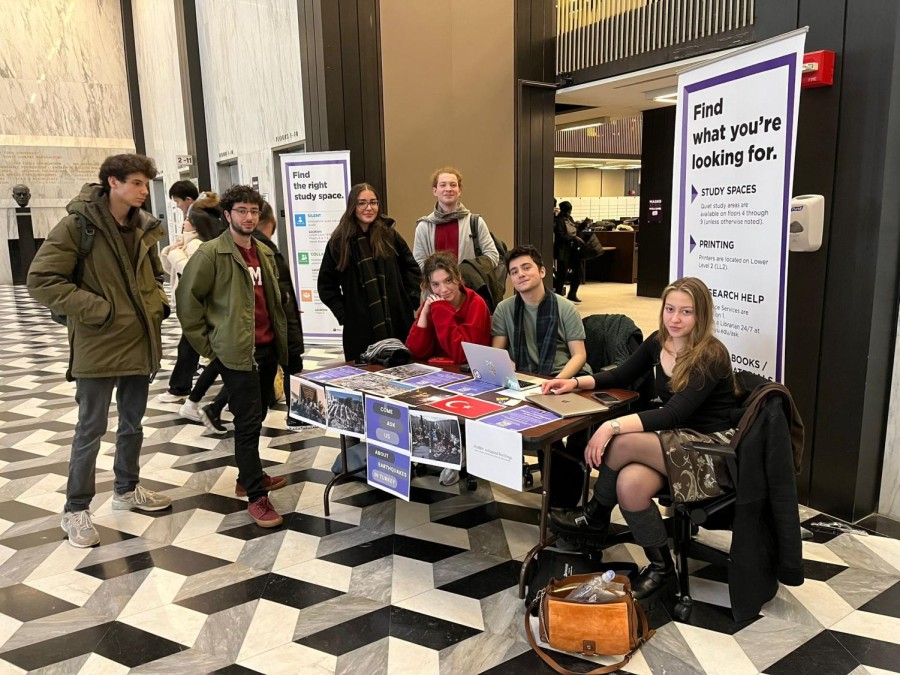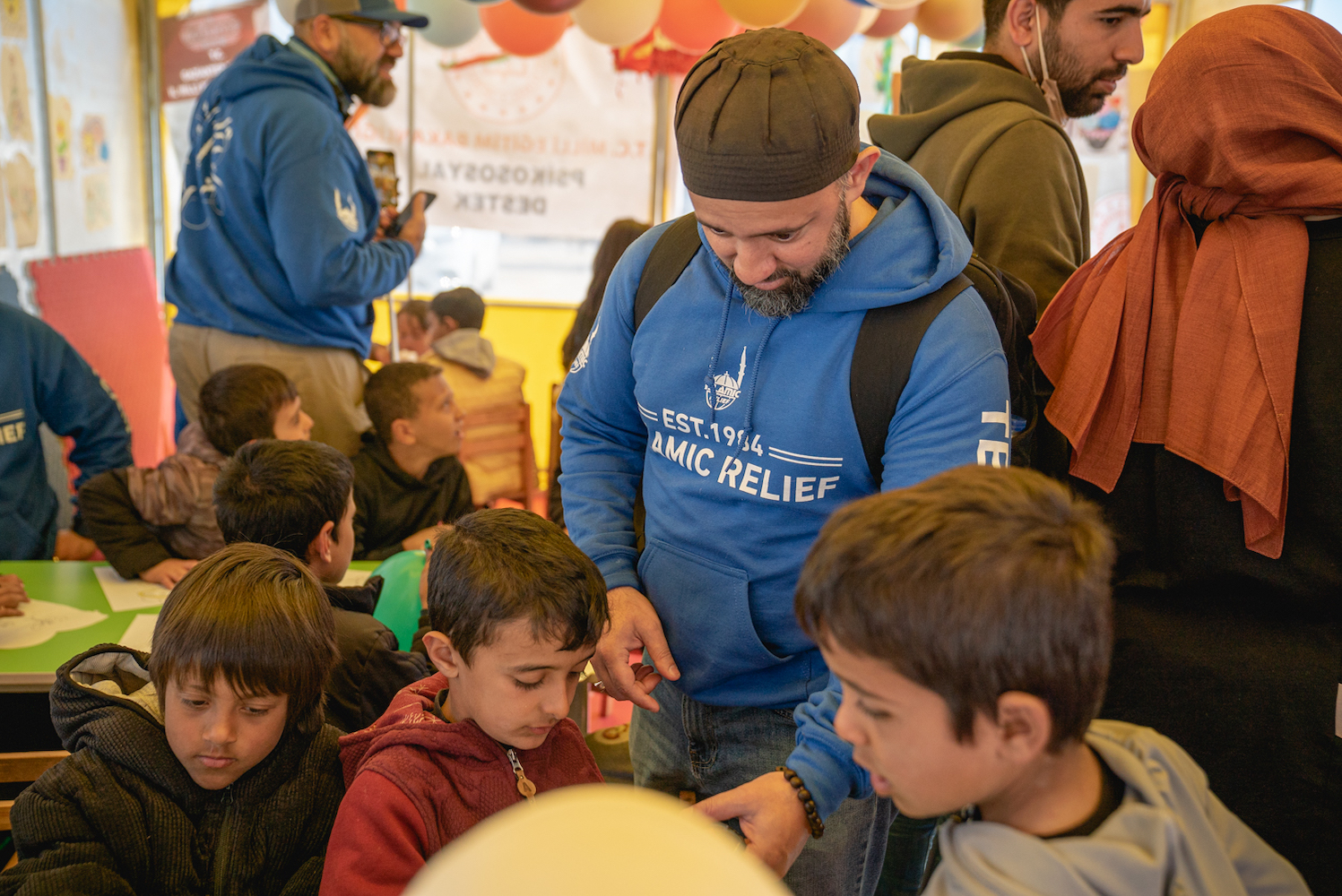What the NYU Community Is Doing to Help Turkey and Syria
Following the recent devastating earthquakes in Turkey and Syria, NYU students and faculty took the initiative to organize relief events. The Turkish Culture Student Association alone raised over $80,000.
Nearly a month later, Turkey and Syria are just beginning to recover from the earthquakes that devastated the countries on February 6. In the aftermath of the disaster, NYU students and faculty took the initiative to support those affected by organizing rescue efforts and providing humanitarian aid. .
Over 47,000 people lost their lives in earthquakes that occurred in northern Syria and southeastern Turkey with a magnitude of 7.5 and 7.8, respectively. Feb 20 another 6.3 earthquake hit southern Turkey near the Syrian border, causing additional damage to buildings.
Çağla Karslioğlu, a Tish alumnus and member of the NYU Turkish Cultural Association, grew up in Turkey and is currently the only member of her family living outside the country. She said that while no one in her family was affected by the tragedy, the families of many of her friends were.
“My family lives far away from the affected area, but some of my best friends have lost their families,” Karslioglu said. “It was all very political. Most of the harm done could have been avoided, but because of the government and the precautions people have failed to take, so many people have been hurt. It was deeply personal.”
Karslioglu believes that the Turkish government priority new infrastructure in more financially privileged areas like Istanbul rather than low-income cities like Gaziantep, which has been hit hard. She believes that the authorities do not allocate enough resources to ensure the safety of apartment buildings in these areas.

The Turkish Cultural Association is working to help earthquake victims by collecting donations in the lobby of the Bobst Library and recently with student government. held a vigil for victims on the steps of the Kimmel Center. Although Karslioglu appreciated the vigil, she felt that the university could have done much more to support relief efforts, and not just an afterthought at the end. email about NYU sports teams.
“The hardest part was seeing that most of the NYU students we saw didn’t care,” Karslioglu said. “We heard some people say we don’t deserve help. We have heard some people say that people who have been harmed deserve it. We’ve heard some crazy stuff.”
As of March 1, the club has raised $84,000 in donations to Ahbap Platformu Resmi Sitesi, a non-profit organization providing shelter, food and medical care to those in need.
Karslioglu also shared fears about another earthquake, which, according to geologists, could have devastating consequences. will affect Istanbul in the next 70 years. Her family is already in the process of proactively moving into better housing in case an earthquake does occur.
“Another strong earthquake is expected in Istanbul, and my whole family is in Istanbul,” Karslioglu said. “My family and almost everyone in Istanbul are trying to move to a safer building because they are afraid for their lives.”
Khalid Latif, New York University Chaplain and Executive Director of its Islamic Center, went to turkey February 13. He worked with Islamic Relief USA to provide immediate relief, cash assistance, food, emergency supplies, and medical assistance to those affected by the earthquakes.
“We were walking through cities that are now completely destroyed,” Latif said. “Places that were once inhabited by 500,000 to 750,000 people have become empty and have become like a war zone. None of them went to bed thinking that an earthquake would hit early the next morning and change their lives forever.”
Lateef said he would like to see the situation firsthand, share the aftermath of the disaster with the NYU community, and promote empathy, forgiveness, and compassion during the month of Ramadan. He added that the victims, although grateful for the humanitarian assistance, were emotionally and physically affected by the earthquakes due to trauma and displacement.
“All the people I met, regardless of their age or what they had lost, gave me the same answer when I asked them what they would like me to say to people when I get home,” Latif said. . “They were all grateful to us for being there. They all said to value our time, value what we have, and all those who are in our lives, and make sure that we do not leave for tomorrow what we have the opportunity to do now.



Latif said that the Islamic Center launched a campaign to assist disaster victims, which has raised $820,000 to date.
“We are dividing humanity and that is enough for me to want to help them in their time of need,” Latif said. “Syria in particular has been through so much over the past decade and the challenges they face due to the ongoing conflict make life even more difficult for the people there. I am proud of our students and the community at the Islamic Center – they always come to the aid of people in difficult times, and I knew that this time it would be the same.”
On the NYU Abu Dhabi campus, Yomna Senior Specialist Elrashid Mohammed has been working with students and faculty for more than two weeks to procure essentials including hygiene products, food, baby powder, milk and diapers for families affected by earthquakes.
About half of the Syrian population has already fled their homes. as a result of the ongoing 12-year civil warThese earthquakes reportedly triggered a new wave of displacement. Elrashid said that while donations to Turkey can be made through the Turkish embassy, donations to Syria from the United Arab Emirates can only be made through the Emirates Red Crescent. Elrachid explained that the affected area counts “rebel-controlled territory” prohibiting outside aid through the Syrian government.
Originally from Sudan, Elrashid has lived her entire life in the Middle East. As a Muslim, her ethnicity and religion compelled her to help the victims.
“It’s definitely a religious responsibility,” Elrashid said. “My main motivation is to know that this is what God has asked us to do. I think it’s really a test to see how we’re going to respond and how we’re going to come together and help those in need.”
Contact Jezen Saada by phone [email protected]
Dallas Press News – Latest News:
Dallas Local News || Fort Worth Local News | Texas State News || Crime and Safety News || National news || Business News || Health News










